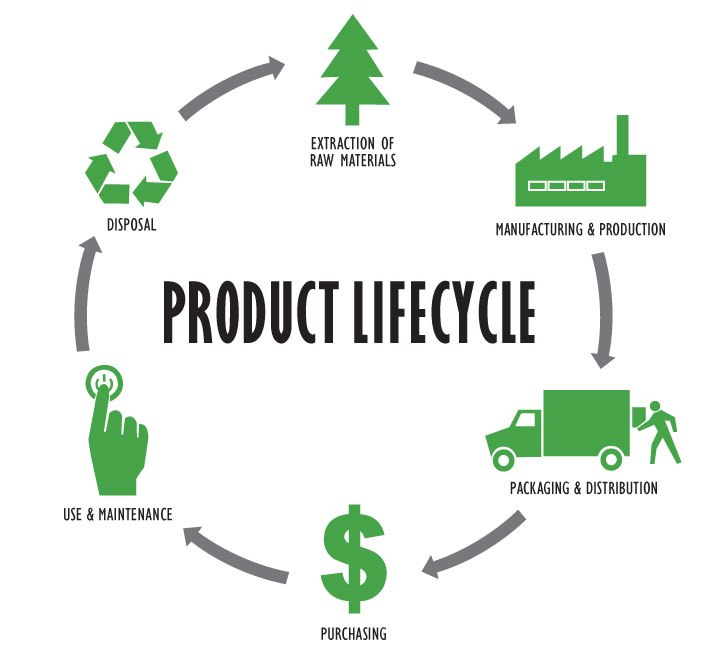Week 12 - Materials
3. LCA
 Life cycle analysis (LCA) is an environmental management tool increasingly used to understand and compare how a product or service is provided from "cradle to grave". The technique examines every single stage of the life cycle from raw material acquisition, through manufacture, distribution, use, possible reuse/recycling and then final disposal. In addition, every operation or unit process within a stage is included. For each operation within a stage, the inputs (raw materials, resources and energy and outputs (emissions to air and water and solid waste are calculated. Theses inputs and outputs are then aggregated over the life cycle. The environmental issues associated with these inputs are then evaluated in the Life Cycle Impact Assessment. This provides a general overview of the product system and other assessment tools can then be combined with this information to evaluate the product or service over the entire life cycle. (Image courtesy of sustainability.ualberta.ca)
Life cycle analysis (LCA) is an environmental management tool increasingly used to understand and compare how a product or service is provided from "cradle to grave". The technique examines every single stage of the life cycle from raw material acquisition, through manufacture, distribution, use, possible reuse/recycling and then final disposal. In addition, every operation or unit process within a stage is included. For each operation within a stage, the inputs (raw materials, resources and energy and outputs (emissions to air and water and solid waste are calculated. Theses inputs and outputs are then aggregated over the life cycle. The environmental issues associated with these inputs are then evaluated in the Life Cycle Impact Assessment. This provides a general overview of the product system and other assessment tools can then be combined with this information to evaluate the product or service over the entire life cycle. (Image courtesy of sustainability.ualberta.ca)
| Benefits | Limitations |
| Maps energy and material flows, resources, solid wastes and emissions for the total system and is therefore a complete systems map | It is not able to assess the actual environmental effects of the products, package or system (i.e it does not predict actual impacts or assess safety, risks or whether thresholds are exceeded) For example, cannot distinguish between diffuse and point source emissions. |
| Considers all environmental issues equally | Time consuming |
| Provides an objective basis for decision making | Does not take into account the potential for environmental disasters due to raw materials extraction (e.g a product created from power generated by Chernobyl) |